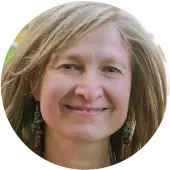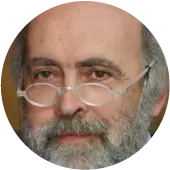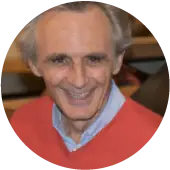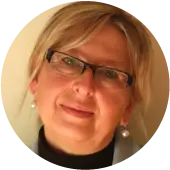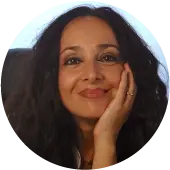
An event created by ![]()
in partnership with ![]()
2022 - 6th
EDITION January
27 - March 24 - June 29 - October 06
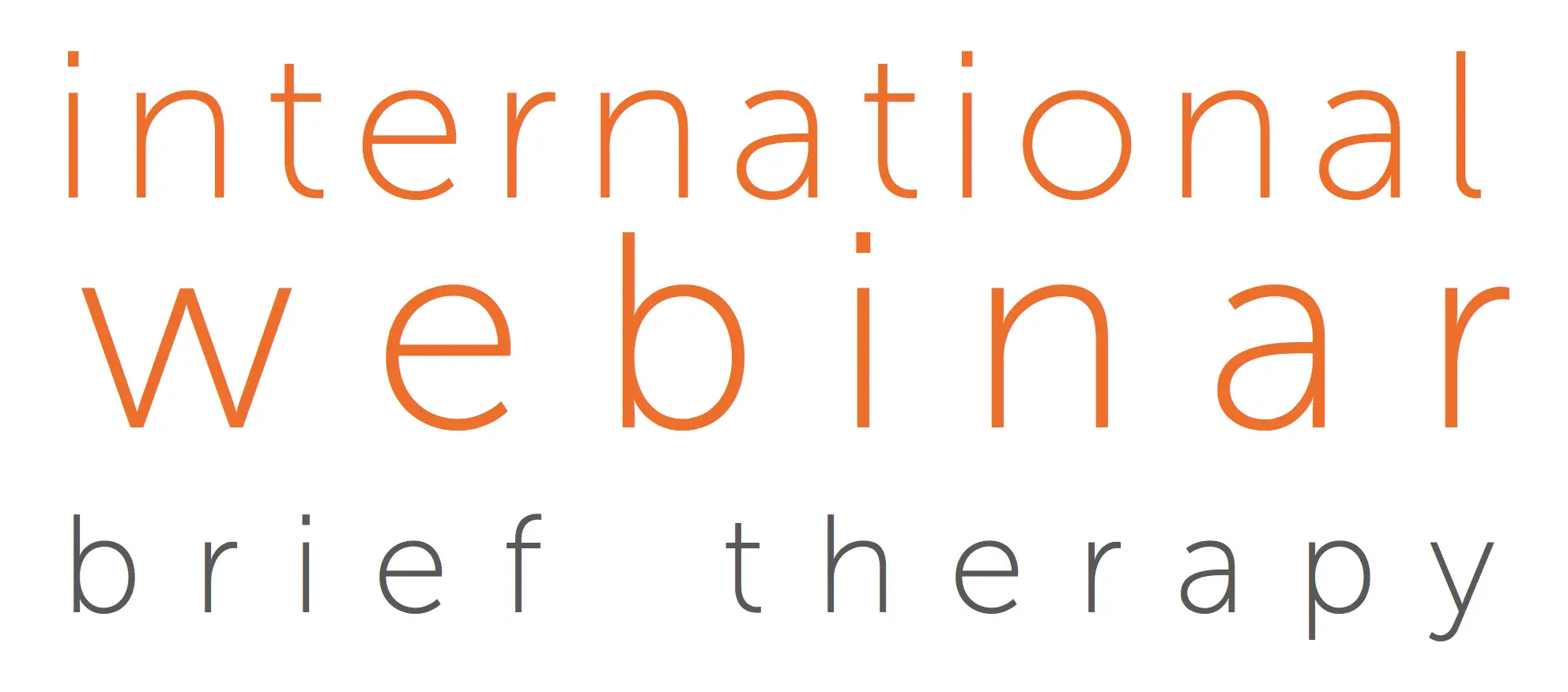
INTERNATIONAL CERTIFYING WEB-CONGRESS
4 half-day conferences, training and certification workshops that bring together psychologists, doctors, philosophers, researchers and therapists in brief therapies, family therapy, hypnosis, NLP, systemic and strategic approach.
FÉDÉRATION ADDICTIONS - SOS ADDICTIONS - OPPELIA - CEID ADDICTIONS - CIRCÉ -
MIMETHYS - JST - SFWORK - PARIS 8 UNIVERSITY - FLORENCE UNIVERSITY - DILTS STRATEGY GROUP - INTERNATIONAL BATESON INSTITUTE - IEFSH - DAN SHORT - CRITICAL NOTEBOOKS ON FAMILY THERAPY AND NETWORKING PRACTICE - CENTER FOR SYSTEMIC ACTION - RAMSAY GROUP
my dear family
EDITO: “My dear family”
Our couples and our families are dear to us in more ways than one!
High places of learning essential to the service of our development, we know with Boszormenyi-Nagy and the game of his "invisible loyalties" that they are also very often the theater of many interactional and emotional processes which slow down, even prohibit, the individual to harmoniously pursue his growth, his personal development, his empowerment and ultimately an ecological and successful interdependence with his family and social context.
The work of epigenetics invites us to think and rethink our history to deal with this heritage and free up resources.
During this last international webinar of the year 2022, we will shed light on the latest advances in therapeutic contributions that allow everyone to reinvent themselves and take advantage of this dear family capital for themselves and for all.
SPEAKERS AND SUMMARIES OF INTERVENTIONS - October 06, 2022
OPENING WEB-CONFERENCE
from 2:00 p.m. to 4:30 p.m. (French time)
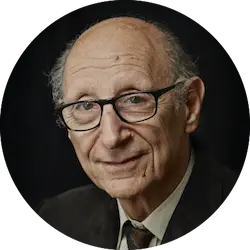
Dr. Robert Neuburger is a psychiatrist, systemic therapist specializing in couple issues. He teaches at the Free University of Brussels, trains and supervises therapists in France and abroad. In addition to being scientific director of the CEFA (Center for the study of the family association) and vice-president of the French Society for Family Therapy, each month he receives a Psychologies.com Internet user for his first session of therapy.
CONFERENCE: "The child facing the couple"
"The best way to protect children is to support their parents, to rebuild their dignity as adults and thus to give children back parents in the full sense, whether they continue their life as a couple or not"

Nathalie Duriez Lecturer in clinical psychology, authorized to direct research, she is the educational manager of the Master 1 Clinical Psychology at a distance from the University of Paris 8 and of 3 university degrees: o the DFSSU "Family clinic and systemic practices", o the DESU “Addiction care”, o DU “Relationship Clinic and Strategic Intervention”. Affiliated with the Psychopathology and Processes of Change Laboratory, her research and publications focus on family therapy, processes of change and resilience, emotional regulation, addictions, hyperstimulability and the theory of reversal. In 2009, she published a book with Erès, Changer en famille. Moderators and mediators of change in family therapy. She works as a family therapist at the CSAPA Monceau in Paris and develops in her practice a model of family therapy centered on emotional regulation. She is also a trainer in the systemic approach and family therapy.
CONFERENCE: "My dear family: love and emotional dysregulation within contemporary families"
The love we feel for our parents, our brothers and sisters, our children, can be a source of anxiety when they are suffering, whether they are aging parents or children in existential crisis. . The narcissistic threat generated by the involvement of other family members then contributes to an ambivalence that will take place in the circularity of intra-family transactions. This can take the form of indifference, a grip of the stronger on the weaker, blaming the other, an attack on their narcissism, and even violent behavior. Attachment wounds accumulate and the relationship then becomes destructive. However, in a context where love, conversation and negotiation organize family relations, the young person cannot allow himself to be disloyal to his family and to cut off this relationship. In a relational impasse, he then risks sinking into depression. In order to help family members to support each other in an appropriate way and to establish more reassuring bonds, we propose an intervention with a family therapy approach centered on emotional regulation. During this communication we will present the work carried out with a family whose very damaged links we are trying to heal.
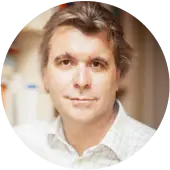
Gregoire VITRY,
PhD, Speaker, trainer, director of SYPRENE, director and partner of LACT
Doctor of the University of Paris Descartes (sociology) and Paris 8 (psychology), graduated from the school of Palo Alto, he has been passionate about the world of complexity for many years.
He has worked for several years in close collaboration with Teresa Garcia, Giogio Nardone, Jean-Jacques Wittezaele, Wendel Ray, Eric Bardot and the MRI to promote research and training in systemic approach.
Since 2016, he has been developing SYPRENE a PRN network (Thurin et al., 2012) in a systemic approach, notably allowing him to improve his practice in close collaboration with the University world.
He is also in charge of the international LACT school and the International Webinar Brief Therapy congress. He is also a graduate of EM Lyon and has a master's degree in Applied Mathematics.
Co-author "When work hurts", "Strategies for change, 16 therapeutic prescriptions".
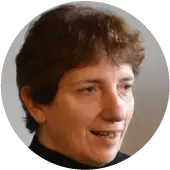
Marie - Christine Cabié is a psychiatrist, psychotherapist, head of the Paris 11 psychiatry center at the Hospitals of Saint Maurice, trainer in systemic family therapy, brief therapies and Ericksonian hypnosis. She is also director of the Relations collection at érès editions.
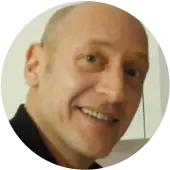
Dr. Bruno DUBOS : Liberal psychiatrist in Rennes since 1992, hypnosis practitioner, and trainer. He is the author of various books and articles: From loyalty to betrayal. How not to be depressed anymore? in the journal Hypnosis and Brief Therapy. (2014) ; The Clandestine Ages. in the journal Hypnosis and Brief Therapy. (2013); Anorexia in young girls: from chrysalis to butterfly. in the journal Hypnosis and Brief Therapy (2008); Cure eating disorders. SATA Editions. (2006).
CONFERENCE: "The Clandestine Ages: SYSTEMIC RELATIONAL DYNAMICS IN THE FAMILY"
The family ecosystem is the place and the context where relational, emotional and bodily skills are constantly mobilized to meet the challenges of family ties. The family symptomatology is very often fueled by defects in “knowing how to be” and “knowing how to do”. It may be useful to approach these issues in the light of the concept of the “clandestine ages”. What does this concept encompass? What influence can it have on the bonds of loyalty, of protection? What impact can it have on the installation of a secure relational framework and on the establishment of family hierarchies? How can it enrich therapeutic strategies?

Stephane Bujold : Psychologist; Former ; Supervisor ; Clinical advisor in public services in Laval (Quebec)
CONFERENCE: "Family language and personal equation in working with families"

Samuel Shannon , Doctor of Philosophy, was born in Oceanside, California, and moved several times before spending most of his childhood in a small town in northern Virginia. He is the eldest of five children. He received his bachelor's degree in psychology from Brigham Young University, and his master's and doctorate degrees from Ohio University. He is currently an Assistant Professor in the Marriage and Family Therapy Programs at Louisiana Monroe University, where he teaches, supervises research and therapy, and participates in the therapeutic process whenever he can. He is the proud father of 4 children, whom he raises and educates with his wife from their home in Monroe, Louisiana.
CONFERENCE: "The passage of relational ethics from one generation to another"
Ivan Boszormenyi-Nagy is one of the founding thinkers of systemic practice. A pioneer of a multigenerational approach, Nagy highlighted the family process of transmitting the resources of trust and the ability to act ethically in relationships. Families are the context in which children learn to give and take in a relationship. Working with couples and individuals always includes working with larger family contexts, and children faithfully bring their past family processes into their current relationships.
Conference and workshops under the chairmanship of Dr. Marie-Christine CABIE
WEB-OPENING CONFERENCE
- 2:00 p.m. - 4:30 p.m.: Robert Neuburger: "The child facing the couple" - With
Marie-Christine Cabié & Grégoire VITRY
WORKSHOPS
GROUP 1:
from 6:00 p.m. to 7:30 p.m. - Moderator: Grégoire VITRY
- Stephane Bujol: "Family language and personal equation in working with families"
- Samuel Shannon: "The passing of relational ethics from one generation to another"
GROUP 2:
from 6:00 p.m. to 7:30 p.m. - Moderator: Claude de Scoraille
- Nathalie Duriez: "My dear family: love and emotional dysregulation within contemporary families"
- Bruno Dubos: "The Clandestine Ages: SYSTEMIC RELATIONAL DYNAMICS IN THE FAMILY"
Live, survive or relive
EDITO: “Live, survive or relive”
"By dint of sacrificing the essential for the emergency, we end up forgetting the urgency of the essential," says Edgar Morin. This observation raises questions about the conditions of our living together. Should we give in to the pressure of urgency? What urgency are we talking about? What does it mean to “live” and “survive”? Should we oppose “live” and “survive” or think of them together?
In Nature and Thought , Bateson (1979, p. 109) recalls: “You can lead a horse near water but you cannot make it drink: drinking is its business. But, even if he's thirsty, he won't be able to drink until you take him to the edge of the water: taking him there is your business. »
During this third international webinar of 2022, we will explore and discuss the perspectives opened up to us by the biopsychosocial vision of intervention to help us connect differently to ourselves, to others and to the world and give - in the footsteps of Frankl - meaning to our life by embracing the urgency of our survival.
SPEAKERS AND SUMMARIES OF INTERVENTIONS - June 29, 2022
OPENING WEB-CONFERENCE
from 3:30 p.m. to 5 p.m. (French time)

Pr. Gérard Ostermann , Professor of therapy, Internal medicine option. Specialist in cardiology and angiology. Graduated in Cognitive-Behavioral Therapy and Pharmacology. Psychotherapist-Analyst. Specialist in addictive behaviors, anorexia and the management of pain and trauma.

Xavier Emmanuelli is a French physician and politician. Founder of the SAMU social de la ville de Paris, he was Secretary of State for Emergency Humanitarian Action from 1995 to 1997 and President of the High Committee for the Housing of Disadvantaged People from 1997 to 2015.

Gregoire VITRY,
PhD, Speaker, trainer, director of SYPRENE, director and partner of LACT
Doctor of the University of Paris Descartes (sociology) and Paris 8 (psychology), graduated from the school of Palo Alto, he has been passionate about the world of complexity for many years.
He has worked for several years in close collaboration with Teresa Garcia, Giogio Nardone, Jean-Jacques Wittezaele, Wendel Ray, Eric Bardot and the MRI to promote research and training in systemic approach.
Since 2016, he has been developing SYPRENE a PRN network (Thurin et al., 2012) in a systemic approach, notably allowing him to improve his practice in close collaboration with the University world.
He is also in charge of the international LACT school and the International Webinar Brief Therapy congress. He is also a graduate of EM Lyon and has a master's degree in Applied Mathematics.
Co-author "When work hurts", "Strategies for change, 16 therapeutic prescriptions".
CONFERENCE: "Practices and efficiency of the strategic systemic approach in the treatment of situations of trauma and collapse"
We will present the fruit of the observations of the SYPRENE network and research publications which indicate an improvement and success rate in strategic systemic approach of more than 80% for trauma-related situations in 6 sessions (Vitry et al., 2021, 2021 ). We will present the observation methodology, the results in terms of trauma-related processes as well as the different operative approaches. We will question the emotional mechanisms involved, the recurring dysfunctional habits as well as the prescriptions and strategic movements mobilized.
The PRN SYPRENE (Systemic Practice Research Network) is an international research network on systemic practices created in 2014 in collaboration with the CTS of Pr. Nardone, the University of Paris 8, Paris 5, Cermes 3 and the institute Mimethys. It allows anyone involved to improve their results through observation, regardless of their sensitivity to intervention. So far, twenty-seven therapists from six countries using the strategic approach have collected data from more than 2,500 patients for a wide range of problem diagnoses.
WORKSHOPS
from 5:30 p.m. to 7:30 p.m. (French time)
Group 1

Pablo Servigne trained as an agronomist and ethologist. He left the academic world in 2008 to become an "in-terre-dependent" researcher (author, lecturer, journalist, screenwriter, etc.). He is the author and co-author of several bestsellers including How everything can collapse (Seuil, 2015), Mutual aid, the other law of the jungle (LLL, 2017), or Another end of the world is possible. (Threshold, 2018).
CONFERENCE: "The importance of ties to tackle storms"
The questions of the end of the world, of collapse, of solastalgia or of eco-anxiety are increasingly present in our society to the point of becoming suffocating. Starting from the weaknesses encountered recently and his career as a whistleblower, Pablo Servigne will share his experiences on the theme of links. What types of links? With who ? How ? For what ? How does this change our view of the world?

Abdennour Bidar , is a French philosopher and essayist, intellectual figure of liberal Islam, he is a member of the observatory of secularism and of the national advisory committee on ethics. Since 2016, he has been Inspector General of National Education. He is the author of several works dealing with the evolutions, which he considers essential, through which Islam must necessarily pass in order to be in harmony with the modern world of the 21st century and to emerge from the age of religion in favor of that of of humanism.
CONFERENCE: "The world of links seen through the Weavers"
Group 2
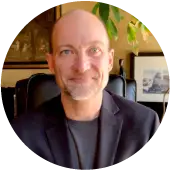
Dan SHORT, Ph.D. , is a practicing clinical psychologist who teaches courses in medical hypnosis at the Southwest College of Naturopathic College of Medicine. He is an expert in Ericksonian psychotherapy and clinical hypnosis and executive director of the Milton H. Erickson Institute of Phoenix. He is best known for collaborating with two of Milton H. Erickson's daughters, Roxanna Erickson-Klein and Betty Alice Erickson, in writing Hope & Resiliency: The Psychotherapeutic Strategies of Milton H. Erickson MD In this classic text, he summarizes his learning of his two-year period as the head of the archives of the Milton H. Erickson Foundation and was thus able to study in depth the texts, audio recordings and videos of Milton Erickson which are preserved there. He currently lives with his wife and her two children in Scottsdale, Arizona.
CONFERENCE: "The use of positive and negative emotions"
The clinical practice of utilization is an acceptance-based approach to psychotherapy that aims to find relevance in established thoughts and behaviors. As Milton Erickson demonstrated, even the symptoms that bring a person into therapy can potentially be used for practical purposes. As a result, clients learn to use who they are as an essential resource in meeting life's challenges. Dan Short, who is the author of "From William James to Milton Erikson - Caring for Human Consciousness", will show the importance of the concept of use for working with emotions. As William James argued, all emotions have a functional purpose that has deep evolutionary roots. Since emotional states automatically regulate thought and behavior, optimizing a given emotion can lead to radical transformation. Referring to his experience with his clients and recent scientific discoveries, Dan Short will show the surprising benefits of using emotions such as regret, anxiety, sadness and misery.

Richard Hill. , MA, MEd, MBMSc: He is an international speaker on the topics of human dynamics, communications, the brain and the mind, and Curiosity, his specialty. His work with Ernest Rossi, PhD, led to the publication of The Practitioner's Guide to Mirroring Hands. He is President of the Global Association of Interpersonal Neurobiology Studies (GAINS), Education Director of The Science of Psychotherapy, Director of the Mindscience Institute, and Editor-in-Chief of The Science of Psychotherapy magazine. He is the author of numerous books, such as "Choose Hope" and "How the 'real world' Is Driving Us Crazy!", as well as numerous journal articles and book chapters.
CONFERENCE: "The therapist of the 21st century - bridging the conscious and the unconscious."
We each carry within us capacities that develop over time. Our psycho-neuro-biological systems are organized to move us forward towards health and survival. But is that all? What are innate abilities and what can we learn to activate and enhance our development beyond survival and into something more? We will discuss new ideas and proposals and deepen our natural problem solving and body-to-body healing.
Conference and workshops
OPENING WEB-CONFERENCE
- 4:00 p.m. - 4:30 p.m.: Grégoire VITRY - Practices and efficiency of the strategic systemic approach in the treatment of situations of trauma and collapse
- 4:30 p.m. - 6:00 p.m.: Xavier EMMANUELLI - Gérard OSTERMANN
WORKSHOPS
GROUP 1:
from 6:00 p.m. to 7:30 p.m. - Moderator: Grégoire VITRY
- Pablo SERVIGNE: "The importance of links to tackle storms"
- Abdennour BIDAR: "The world of links seen through the Weavers"
GROUP 2:
from 6:00 p.m. to 7:30 p.m. - Moderator: Amélie DETOLLENAERE
- Richard HILL : "The therapist of the 21st century: bridging the conscious and the unconscious"
- Dan SHORT: "The use of positive and negative emotions"
Addiction: forbidden pleasures
EDITO: “Addiction: forbidden pleasures”
The consumption of addictive substances embodies a major paradox in our societies of consumption and performance - both tempting and regulating these "forbidden fruits". The biopsychosocial vision sheds light on addiction as much as a “rupture of hedonistic homeostasis” (Koob and Le Moal, 1997) as the failure of an illusion of sensory control most often aimed at anesthetizing the intolerable (Nardone and Portelli, 1998).
During this international webinar dedicated to addiction, we will focus our reflections and our exchanges around the lessons that can be learned from the experiences implemented, in these times of health, economic and social crises that are setting in, to help patients get out of the sensory enslavement of a pleasure that has become a skin of grief and pain and to regain their vitality at the rate of varied and regulated pleasures.
SPEAKERS AND SUMMARIES OF INTERVENTIONS - January 27, 2022
OPENING WEB-CONFERENCE
from 4:00 p.m. to 5:30 p.m. (French time)

Dr. François Jullien: Philosopher and sinologist, he is the author of numerous works which propose to shift European philosophy by confronting it with Chinese thought, in particular Philosophy of living (Gallimard, 2011) or A second life (Grasset, 2017 ). In January, he publishes L'Inouï. Overturning this so boring reality (Grasset, read p. 86 ) and From the gap to the unheard of (Carnets de L'Herne), while a book is dedicated to it: Thinking by gap. François Jullien's conceptual project (by Jean-Pierre Bompied, Descartes & Cie). He currently holds the chair on otherness created at the Fondation Maison des sciences de l'homme. In 2010, he received the Hannah Arendt Prize for Political Thought in Germany; and, in 2011, the Grand Prize for Philosophy from the French Academy for all of his work.
CONFERENCE: What is treating addictions today?
The decoincidence is necessary to reveal where the rupture can come from and this in a progressive, or rather processual way. In the very course of continuity, it is a question of dissociating something which previously imposed itself. It is a question of getting out of what is frozen. Often, the situation freezes in a kind of positivity (which spreads), which seems beneficial, happy, without realizing what freezes, sclerosis in itself. We must therefore dissociate ourselves in order to be able to reopen the possibilities. And this is in fact the challenge of this concept, of decoincidence: to undo the blockages which, without our knowledge, immobilize us.
WORKSHOPS
from 6:00 p.m. to 7:30 p.m. (French time)
Group 1

Dr. Alain MOREL : Psychiatrist, Managing Director of the OPPELIA association, President of the Association for Research and Promotion of Experiential Approaches (ARPAE), Co-founder of the European Federation of Drug Addiction Workers.
If care is the act aimed at relieving suffering, we must agree on the nature of this suffering. Addictive behavior being both a search for self-relief and a potential source of suffering, we understand that it is necessary to define with the user himself what and by what he could be treated. This amounts to establishing a relationship of cooperation from the outset .

Pr. Georges BROUSSE : He is a psychiatrist and addictologist at Clermont-Ferrand University Hospital.
Group 2

Jean-Pierre Couteron: clinical psychologist, working in a CSAPA (Addictology Support and Prevention Care Centres), and President of the Addiction Federation. Since 1999, he has been interested in welcoming young users and has participated in the design and implementation of young consumer consultations
CONFERENCE: "Taking the measure of the evolutions of lifestyles, in these links which are constantly changing between humans and their machines, between their inventions to go beyond their limits, and the limits that their inventions pose to their desire to free, must help us to rethink the support for families in this moment of adolescence when forbidden/authorized play becomes autonomous”

Jean-Félix Savary : Secretary General of GREA, French-speaking network of addiction professionals. With a degree in political science and a Master's degree in Public Administration, he is passionate about societal issues, human rights and ecological issues in the broad sense. Active on the national and international scene for many years, he defends a progressive vision of the human being that respects difference and promotes collaboration. He specializes in public policy, coalitions and advocacy.
For an ecological approach to drugs »
Group 3

Dr. Eric HISPARD : Éric hispard is an addictologist at csapa Paris XIV addictions-France, President of Acerma (Association for Communication, Space and Reintegration of Addictive Patients) and former PH APHP and former president of the addictology collegiate of aphp.
The people we meet are in a relationship with products that becomes impossible to maintain. They will necessarily have to modify its form whatever the origin of this constraint, medical, social, psychological, affective… The addictology clinic must take on this dimension, this renunciation to evoke a field of new spaces.

Francis ABRAMOVICI
Francis Abramovici is a general practitioner but also a trainer in Ericksonian hypnosis. He is Secretary General of the College of General Medicine and also Editor-in-Chief of the Revue Médecine. He provides discreet care practices on 4 continents.
CONFERENCE: "It is forbidden to prohibit"
One can undoubtedly live happily without having health, be in “good health” without being happy. But can we be happy without pleasure? and without prohibition? This exercise in style evokes Raymond Queneau by associating the words "pleasures" and "prohibitions" in the plural. Exercise in theorizing for a practitioner of family medicine, discipline exercised by limping on my two legs: the right leg of the diagnosis and the left of the therapist.
Conference and workshops under the chairmanship of
Dr. Alain MOREL OPENING WEB-CONFERENCE
- 3:30 p.m. - 3:45 p.m.: Welcome by Grégoire VITRY and Dr. Alain MOREL
- 3:45 p.m. - 5:15 p.m.: Interview with François JULLIEN on decoincidence by Julien BETBEZE, Jean-Pierre COUTERON, Claude de SCORRAILLE and Grégoire VITRY
- 5:15 p.m. - 5:30 p.m.: News and research by Grégoire VITRY and Olivier BROSSEAU
WORKSHOPS
GROUP 1:
from 6:00 p.m. to 7:30 p.m. - Moderator: Claude de SCORRAILLE
- Alain MOREL: What is treating addictions today?
- Georges BROUSSE: "The pleasure of relief at the risk of the forbidden: putting dual pathologies to the test".
GROUP 2:
from 6:00 p.m. to 7:30 p.m. - Moderator: Grégoire VITRY
- Jean-Pierre COUTERON: The metamorphoses of temptation.
- Jean-Félix SAVARY: What place for non-medical uses? For an ecological approach to drugs.
GROUP 3:
from 6:00 p.m. to 7:30 p.m. - Moderators: Amélie DETOLLENAERE
- Eric HISPARD: From forbidden or finite pleasure to infinite pleasures
- Françis ABRAMOVICI: Is it forbidden to ban?
IMPORTANT : download the user manual to connect to MOODLE and view the videos in
replay
PREFERENTIAL TARIFF
REGISTRATION 4 SESSIONS
Standard rate: €150 including tax // Paris 8 partner rate: €75 including tax

INTERNATIONAL WEBINAR 7th edition - 2023

An event created by ![]()
in partnership with ![]()
2023 - 7th
EDITION January
26 - March 23 - June 22 - October 05

INTERNATIONAL CERTIFYING WEB-CONGRESS
4 half-day conferences, training and certification workshops that bring together psychologists, doctors, philosophers, researchers and therapists in brief therapies, family therapy, hypnosis, NLP, systemic and strategic approach.
FÉDÉRATION ADDICTIONS - SOS ADDICTIONS - OPPELIA - CEID ADDICTIONS - CIRCÉ -
MIMETHYS - JST - SFWORK - PARIS 8 UNIVERSITY - FLORENCE UNIVERSITY - DILTS STRATEGY GROUP - INTERNATIONAL BATESON INSTITUTE - IEFSH - DAN SHORT - CRITICAL NOTEBOOKS ON FAMILY THERAPY AND NETWORKING PRACTICE - CENTER FOR SYSTEMIC ACTION - RAMSAY GROUP
Faced with an addictogenic society dictated by individualism and performance, pleasure and the instantaneous, how does the educational function of families adapt? Separations, addictive behaviors and ambiguous loss of the loved one who is there without being there, absorbed by a life which oscillates between pleasure and boredom, between digital and consumption of products: what are the risks of this addictogenic society on family ties? What skills should families develop to deal with these new addictions?
January 26 2023
Families: educating/accompanying in an addictogenic society

March 23 2023
System trades
inter-university congress

June 22 2023
The feeling of helplessness

05 October 2023
The boring teenager

4th edition - 2020
RETHINKING RELATIONSHIPS
EDITO: Rethinking relationships
The unprecedented global health crisis has revealed the extreme vulnerability of our societies:
1. the acuteness of the economic (interdependence, scarcity), ecological (global warming), social (communitarianism, impoverishment), political (authoritarianism, mistrust, extremism) impasses towards which an individualistic and fragmentary vision of societal issues has led them,
2. the need to learn how to navigate differently on a "sea of uncertainty", alone and together, in the face of the challenges of economic and societal transformation that are looming, global health issues.
During the experience of confinement, digital communication interfered beyond its initial borders specific to the younger generations and invaded everyone's professional and personal spaces. These digital exchanges have given rise to hitherto unthought-of experiments and discoveries (work, family), which lead us to re-examine the very nature of our relationships and their issues (self-to-self, self-to-other , from oneself to institutions and to the world) beyond the frustrations of no longer seeing oneself physically.
A need is emerging to take a new global look and rethink the management of health (and suffering) in the fields of care (physical and mental) but also education, childcare, family, justice, economics, politics. With the line of sight, a systemic transformation of the notion of performance towards a relational performance (and no longer individual), to "simultaneously develop our behaviors, our emotions, our conceptions of how we invest our roles" and to regulate our interactions, in the service of the common interest.
SPEAKERS AND SUMMARIES OF INTERVENTIONS - October 1, 2020
OPENING WEB-CONFERENCE
from 4 p.m. to 5:40 p.m. (French time)

Serge TISSERON : Psychiatrist, member of the Academy of Technologies, doctor in HDR psychology, member of the scientific council of the CRPMS, University of Paris. He completed his medical thesis in 1975 in the form of a comic strip and discovered Hergé's family secret only from reading the Tintin albums. He has published around forty personal essays, notably on family secrets and our relationship to images, translated into twelve languages. Latest work: The silent influence of talking machines, never alone again (Ed. LLL).
CONFERENCE:
"Managing learning from confinement" During the confinement period, many of us experienced new relationships within the family sphere, but also with extended family and friends, and of course with colleagues. and the professional hierarchy. Each time, new opportunities have been discovered, but unexpected problems have also arisen. How can you take advantage of these opportunities without falling into the mistakes that have sometimes clouded the benefit of these experiences?
WORKSHOPS
from 6:00 p.m. to 8:00 p.m. (French time)
GROUP 1

Dr. Katarina ANGER: Renowned speaker and co-founder of the Center for Systemic Action. She is a research associate at the MRI in Palo Alto and at the Brief Therapy Center, CAIPSI in Mexico City and at the Erickson Institute in Madrid. She is also a supervisor at the YAI National Institute for the Disabled, an organization that helps people with mental disabilities and their families throughout their lives.
CONFERENCE: "Shared Responsibilities"

Dr. Michael HOYT is an independent psychologist in Mill Valley, CA. He is the author/editor of numerous books on brief therapy, including "Brief Therapy and Beyond", "Capturing the Moment", and "Single-Session Therapy By Walk-In or Appointment". He was named a Distinguished Lecturer in Continuing Education by the American Psychological Association and the International Association of Marriage.
LECTURE: "My half-decameron regarding COVID"
Seven hundred years ago, Europe was struck by the plague and Giovanni Boccaccio wrote a story, The Decameron, about a group of ten women and men from Florence to the time, who retired to a country villa for ten days in the hope of avoiding illness. Each of the ten agreed to tell a story each day, for ten days, to entertain each other. (Decameron is derived from ancient Greek, meaning "10 days.") The hundred stories Boccaccio told give us insight into how different people think and feel, their perspectives and sensibilities - some stories are funny, others are sad, etc.
WORKSHOPS
from 6:00 p.m. to 8:00 p.m.
(French time)
GROUP 2

Edith GOLDBETER-MERINFELD : Doctor of Psychology, honorary professor at the Free University of Brussels, director of training at the Institute for the Study of the Family and Human Systems of Brussels, editor-in-chief of the Cahiers critiques of family therapy and network practices.
CONFERENCE:
"Confined families, confined therapists, confined therapies" In this time of predominance of the danger of contamination by Covid-19, we have experienced the imposition of confinement and then the need to maintain certain aspects of it.
Their impact on families – ours and those who consult us –, the unusual ways of functioning as therapists and the reorientations of therapeutic modalities have led to bifurcations in the various systems involved... Will these modifications of trajectories be reversible or will they lead to to a fundamental change (type II) in our/the interrelational world?
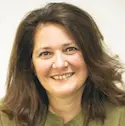
Claude de SCORRAILLE : Psychologist and psychotherapist, co-founder and president of LACT, research associate, supervisor and trainer at LACT and at the IAE of Paris within the Master of Administration and Business.
CONFERENCE: " Towards a pragmatic humanism"
In response to Covid-19, we were ordered to confine ourselves and then wear masks. The life that we thought was stable gave way to a world of fear and anguish, generated by paradoxes where isolation could become synonymous with mental torture. The crisis has settled in our lives, shaking up our needs for certainties and uncertainties. She highlighted how vital relationship is for human beings. These needs question the attempts at redundant solutions embodied in a systemic world centered on individualistic values. We present here the principles and strategies that make possible the transition from individual performance to a pragmatic humanism.
WORKSHOPS
from 6:00 p.m. to 8:00 p.m.
(French time)
GROUP 3

Dr. Sophie BARON-LAFORET: Psychiatrist and President of the French Association of Criminology
CONFERENCE: "Relational escape behavior"
In many situations, going out, moving away, is often described as an escape from violent behavior.
For the author of the act, who would thus avoid it. Or for the victim of the act that would limit the acts by leaving. Reconciliation being the condition of the act. We feared that confinement would allow an increase in acts of intra-family and in particular marital violence. It is the word through the means of communication at our disposal that has taken over more importantly than we had thought.
In the absence of face to face, the place of speech has changed. The demand for contacts through this channel has been significant. Which goes in the direction of breaking the isolation and the silence which is identified as a factor of aggravation, encystment, repetition of the victim process, ... The place of speech has changed what we could congratulate ourselves on if we place differently.
The content of the interviews reworked several presuppositions: the importance of physical presence, the place of intimacy and sharing. We must re-examine the place of this word: facilitation of a feeling of sharing, less loneliness of the event. What do we do with these words? I place it in the wake of the Me Too movement which led to a reorganization, with a different social place for speech, demands for justice... Our reflections are partly in line with the place of social networks in our relationships.
Our benchmarks need to be revamped to build on these changes as resources.

Steeves DEMAZEUX is a philosopher of science, Lecturer at Bordeaux-Montaigne University, attached to the SPH laboratory (EA 4574). He is the author of What is the DSM? (Ithaque, 2013) and The eclipse of the symptom (Ithaque, 2019). He is currently directing the Philo-CINAPs project, dedicated to the theory of symptoms at the crossroads between psychiatry and neurosciences.
CONFERENCE: "What makes a symptom? What does not make a symptom? The limits of psychiatric semiology" "
In this intervention, it will be a question, for me, as a philosopher of science, to reflect on the definition of the symptom in a psychiatric clinic. How was it conceived through the psychiatric tradition? What kind of fact is it? How is it observed? How can we objectify it? It is therefore to the very foundations of the clinic that it is a question of returning, in order to shed light on the way in which the symptoms interact with each other, the way also in which they can lead to the statement or not of a diagnosis”.
Conference and workshops chaired by Sophie SUBERVILLE, dir.
MRI of Palo Alto OPENING WEB-CONFERENCE
- 4:00 p.m. - 4:20 p.m.: Welcome by Grégoire VITRY and Sophie SUBERVILLE, President of the International Webinar
- 4:15 p.m. - 4:30 p.m.: Serge TISSERON: "Relations and digital in the time of COVID"
- 4:30 p.m. - 5:10 p.m.: Questions & answers live with Serge TISSERON and Grégoire VITRY
- 5:10 - 5:30 p.m.: News and research by Grégoire VITRY, Olivier BROSSEAU and Sophie SUBERVILLE
WORKSHOPS
GROUP 1:
from 6 p.m. to 8 p.m. - With Sophie SUBERVILLE - Moderator: Olivier BROSSEAU - Translator: Bill WALKER
- Dr. Katharina ANGER : "Shared Responsibilities"
- Dr. Michael HOYT : "My half-decameron"
GROUP 2:
from 6:00 p.m. to 8:00 p.m. -
Moderator: Grégoire VITRY
- Claude de SCORRAILLE: "Towards a pragmatic humanism"
- Edith GOLDBETER-MERINFELD: "Confined families, confined therapists, confined therapies"
GROUP 3:
6:00 p.m. to 8:00 p.m. - Moderator: Vira HENG
- Dr. Sophie BARON-LAFORET
"Relational escape behavior" - Steeves DEMAZEUX "What makes a symptom? What does not make a symptom?
The limits of psychiatric semiology"
IMPORTANT
: download the user manual to connect to MOODLE and view the videos in
replay
THE WORLD OF EMOTIONS
in replay
EDITO: The world of emotions
The very concept of emotion has more than 90 definitions. Philosophy has reflected little on the very concept of emotion as such. Even though emotion is omnipresent on a daily basis, in all of our daily lives, as individuals, patients or professionals. It can overwhelm us, weaken us, isolate us, enrich us, strengthen us, nourish us, make us smarter to move, as François Jullien says, from the loss of life to real life.
Is emotion an experience? Is it the product of our history? Is it part of our biological heritage? Is it the effect of our cognition? Or the reaction to the other? Or is it all of these at once? And today, how to regulate it and find the gestures and questions that help, at a time when the COVID-19 is hitting us brutally and in particular the caregivers?
Through testimonies and conferences at the crossroads of therapeutic and philosophical paths, we will reflect and experience together the complexity of emotional worlds.
We are going to approach with our speakers the emotion according to various therapeutic perspectives? Interactional, resource-oriented, constructivist and strategic, behavioral, sensitive, experiential, neurophysiological and psycho-corporal, psycho-cognitive.
SPEAKERS AND SUMMARIES OF INTERVENTIONS - March 27, 2020
OPENING WEB-CONFERENCE
from 4 p.m. to 5:40 p.m. (French time)

Dr. Marie-Christine CABIÉ : Psychiatrist, psychotherapist, head of the Paris 11 psychiatry center at the Saint Maurice Hospitals, trainer in systemic family therapy, brief therapies and Ericksonian hypnosis. She is also director of the Relations at érès editions.
CONFERENCE: "Emotion and communication"

Claude de SCORRAILLE : Psychologist and psychotherapist, co-founder and president of LACT, research associate, supervisor and trainer at LACT and at the IAE of Paris within the Master of Administration and Business.
CONFERENCE "Taking care of situations of emotional distress linked to COVID-19"

François JULLIEN : Philosopher and sinologist, he is the author of numerous works which propose to shift European philosophy by confronting it with Chinese thought, in particular Philosophy of living (Gallimard, 2011) or A second life (Grasset, 2017). In January, he publishes L'Inouï. Overturning this so boring reality (Grasset, read p. 86 ) and From the gap to the unheard of (Carnets de L'Herne), while a book is dedicated to it: Thinking by gap. François Jullien's conceptual project (by Jean-Pierre Bompied, Descartes & Cie). He currently holds the chair on otherness created at the Fondation Maison des sciences de l'homme. In 2010, he received the Hannah Arendt Prize for Political Thought in Germany; and, in 2011, the Grand Prize for Philosophy from the French Academy for all of his work.
EXCLUSIVE INTERVIEW with François JULLIEN by Grégoire VITRY and Claude de SCORRAILLE: "Emotions in therapy, from overflow to real life"
WORKSHOPS
from 6:00 p.m. to 8:00 p.m. (French time)
GROUP 1

Dr. Robert ELSNER : Professor and Chair of Psychology, Director of the Counseling Program and Chair of Ethics at Erskine College and Theological Seminary in Due West, SC. He was previously Assistant Professor of Family and Community Medicine at Wake Forest University, where he led health care access projects at the Maya Angelou Center for Health Equity. Early in his training, he worked at the University of Georgia and on HealthSense at University College Cork.
CONFERENCE "The senses and the emotions" : The senses are intrinsically linked to the emotions through human neurophysiology. Understanding this link provides a more informed approach to clinical interventions. In the workshop, we will discuss sensation and emotion from a lifespan perspective, touching lightly on relevant neurophysiology, optimal aging perspectives, and emotional dysregulation. Suggestions for using sensory stimulation as an adjunct to other therapeutic modalities are included.

Dr. Richard Hill , MA, MEd, MBMSc: He is an international speaker on the topics of human dynamics, communications, brain and mind, and Curiosity, his specialty. His work with Ernest Rossi, PhD, led to the publication of The Practitioner's Guide to Mirroring Hands. He is President of the Global Association of Interpersonal Neurobiology Studies (GAINS), Education Director of The Science of Psychotherapy, Director of the Mindscience Institute, and Editor-in-Chief of The Science of Psychotherapy magazine. He is the author of numerous books, such as "Choose Hope" and "How the 'real world' Is Driving Us Crazy!", as well as numerous journal articles and book chapters.
CONFERENCE "A new emotional awareness" : The term "emotion" is a term whose technical definition is often disputed. Recent work by Joseph LeDoux, and others, takes stock of how emotions are represented in mental processes and in the "felt experience" of everyday life. We explore Ledoux and Brown's model of how emotions arise in consciousness and discuss how this model can be applied to our conscious perception of reality. It will be shown that an individual's focus of attention and consequent perception of reality are influenced by the orientation of the individual's emotional, cognitive, and attitudinal framework.
WORKSHOPS
from 6:00 p.m. to 8:00 p.m.
(French time)
GROUP 2

Claude de SCORRAILLE : Psychologist and psychotherapist, co-founder and president of LACT, research associate, supervisor and trainer at LACT and at the IAE of Paris within the Master of Administration and Business.
CONFERENCE "From shame to empathy, how to find the social bond" : What is shame and what is it not? Shame will be approached from the angle of a loss of control where one is not up to what is expected of oneself. A loss of control that pushes to hide and that can end up becoming pathological. It is an emotion that advances masked. We will see how to flush out this “shameful” emotion which isolates, locks up and causes suffering or sometimes a tragic destiny. Finally, we will see how to get out of despair and what strategy to adopt.

Pr. Gérard OSTERMANN : Professor of Therapeutics option Internal Medicine (1983), Specialist in Cardiology, Specialist in Internal Medicine, Psychotherapist-Analyst, graduate of Cognitive-Behavioral Therapy, EMDR Practitioner Europe. Trained in Narrative Therapy. Founder and President of the Regional College of Alcoologists of Aquitaine (CRAA), Administrator of the French Society of Alcoology, President of the Institute of Food Behaviors of Bordeaux and member of the Scientific Council of the Journal TRANSES Lecturer in the context of Diplomas universities in Bordeaux, Limoges, Lyon, Tours and Clermont Ferrand.
CONFERENCE " Anger and liver" : Of all the palette of our unpleasant emotions, anger is the one that is often the most depreciated, the most criticized, but also the most misunderstood. The French word “anger” comes from the Latin “cholera” meaning, bile. The word "chole" appeared next, (from the Greek χολὴ, bile) and was long used in the sense of outburst. We still speak today of unloading one's bile. Is anger as universal as claimed? How do we distinguish between personal anger and anger that is like a foreign body inside us? We have to distinguish between an anger of imputation ( it's Voltaire's fault, it's Rousseau's fault! ) and the anger of implication by knowing how to recognize that as a subject, the situation where I I find myself is in reality the situation in which I put myself. We cannot manage anger, because anger manages us. It is up to us to digest knowing how to welcome it so as not to make bad calculations!
Conference and workshops under the chairmanship of Dr. Marie-Christine CABIÉ
WEB-OPENING CONFERENCE
- 4:00 p.m. - 4:10 p.m.: Welcome by Grégoire VITRY and Dr. Marie-Christine CABIÉ President of the International Webinar
- 4:10 p.m. - 4:20 p.m.: Claude de SCORRAILLE: "Dealing with situations of emotional distress linked to COVID-19"
- 4:20 - 4:30 p.m.: Introduction by Dr. Marie-Christine CABIÉ: "Emotion and communication"
- 4:30 p.m. - 5:10 p.m.: Questions & answers live with Claude de SCORRAILLE and Dr. Marie-Christine CABIÉ
- 5:10 p.m. - 5:25 p.m.: News and research by Grégoire VITRY and Olivier BROSSEAU
- 5:25 p.m. - 5:40 p.m.: Exclusive interview with François JULLIEN by Grégoire VITRY and Claude de SCORRAILLE: "Emotions in therapy, from overflow to real life"
WORKSHOPS
GROUP 1:
from 6 p.m. to 8 p.m.
- Dr. Robert ELSNER "The senses and the emotions"
- Dr. Richard HILL "A New Emotional Awareness"
GROUP 2:
from 6 p.m. to 8 p.m.
- Claude de SCORRAILLE: "From shame to empathy, how to rediscover the social link"
- Pr. Gérard OSTERMANN: "Anger and liver"
IMPORTANT
: download the user manual to connect to MOODLE and view the videos in
replay
ADDICTION: A COMPLEX WORLD
in replay
EDITO: The complex world of addictions
“The slightest movement matters to all nature; the sea changes for a stone. Thus, in grace, the least action is important by its consequences to everything. So everything is important. In each action, it is necessary to look, in addition to the action, our present, past, future state and the others to whom it matters, and to see the connections of all these things”. (Pascal, 1869-1872, p. 378)
Is addiction a uniquely individual problem at the psychological or biological level, that is to say intrinsic to the individual himself? Do we not take the risk in this case of isolating the individual in a labeling pathologizing and disempowering for his environment? Is addiction a reflection of the functioning of a society that produces pathogenic situations? But in this case are we not taking the risk of disempowering the individual for his behavior?
In this congress we will reflect together on how to take into account the complexity of the world of addictions and avoid isolating the individual from his environment and from society.
SPEAKERS AND SUMMARIES OF INTERVENTIONS - January 23, 2020
OPENING WEB-CONFERENCE
from 4 p.m. to 5 p.m. (French time)

Dr. Jean-Michel DELILE : Psychiatrist, Ethnologist, Family therapist, Addictologist, Member of the National Narcotics Commission, Director of CEID (Committee for Study and Information on Drugs), Bordeaux and President of the Addiction Federation.
CONFERENCE " Biopsychosocial approach to addictions" : The predictive factors of the onset of addiction, its regulation and its regression are essentially psychosocial factors linked to the history of life, to the fact that one has known painful events during childhood, that we had experiences of rupture, a complicated family environment. If there is a personality disorder, it is also a consequence of this context. This allows us to understand that doctors should not limit themselves to a necessarily reductive unilinear approach but return to a pluricausal model. Our models of reflection around mental health and addiction must necessarily be global and if biogenetic disorders exist, they are vulnerabilities, they are not direct causes.
WORKSHOPS
from 5:30 p.m. to 7:30 p.m. (French time)
GROUP 1

Julia ALPEROVICH : specialized in marital and family therapy, has worked in the field of mental health for more than 10 years. His work has primarily focused on the treatment of addictions. She is currently a therapist at a residential facility for the treatment of drug and alcoholism in California. She also has a private practice where she primarily deals with sex and pornography addiction.
CONFERENCE " The treatment of addictions in the United States" : In the United States, we start by evaluating three points: the person's ability to function in all aspects of their life (reference on a global scale), their degree of tolerance to distress, his ability to manage anxiety. When the addiction is proven, we have very specific treatment objectives: total abstinence for chemical substances including alcohol, behavioral change in other cases. Risk reduction is still little taken into account; one stays steeped in the 12-step model of Alcoholics Anonymous. Many programs are offered, the major problem remaining in the United States the coverage by health insurance.
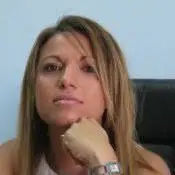
Dr. Claudette PORTELLI : Psychologist, psychotherapist and trainer. She practices in Malta and Italy. She is a lecturer at the University of Malta and Dublin City University, where she teaches challenging behaviors in the school context. She is a lecturer at the School of Specialization in Brief Strategic Therapy (Arezzo, Italy) directed by Pr. Giorgio Nadone. Co-author of the textbooks Knowing Through Changing: The Evolution of Brief Strategic Therapy (2010) with Giorgio Nardone and New Addictions (2017) with Matteo Papantuono.
CONFERENCE "Strategic approach and addictions" : Addiction is first used as a tool, an illusion of control that persists for a while, but the more the addiction sets in, the more the addict loses control and the addiction becomes a problem that is added to the initial problem. The first thing we must do is to discriminate in order to understand the function of addiction: is it a means of creating a sensation or of anesthetizing a difficulty or a pain? The answer to these questions determines how we will approach therapeutic work.
WORKSHOPS
from 5:30 p.m. to 7:30 p.m. (French time)
GROUP 2

Dr. Mario BLAISE : He is a psychiatrist, addictologist, and head of service at the Marmottan Medical Center in Paris, a public care structure for drug addicts.
CONFERENCE "Principles of use of pharmacological treatments in addiction" : In addictions, drugs are used as tools of care, with an intentionality, an objective, so they really have to be adapted to the situation. And this so that patients can appropriate them. Since the problems are often experienced as shameful, there is a denial on the part of the patients and therefore a brake on the acceptance of the treatment. With drugs, we try to stop the process of addiction, to prevent it from coming back and to limit the damage. Abstinence is a consequence, not necessarily a prerequisite. So we have to ensure that care is integrated because we know full well that if we don't take into account all the psychosocial dimensions at the same time, we risk failure.

Dr. Christophe CUTARELLA : he is an addictologist psychiatrist and tobacco specialist coordinator in SSR addictology. He is President of GRAAP and committed to continuing medical education. He is also a consultant in addictology/smoking in companies and in health establishments (public and private), in the management of problematic situations related to addictive behavior and burnout in the professional environment and in the management of psychosocial risks.
CONFERENCE " Motivational interviewing" : Motivational interviewing is made to bring about change; the person wants, for example, to free themselves from their addiction(s). The behavioral strategy implies that we work to readjust his habits, his rituals. The cognitive strategy will focus on the decisional balance. The advantage of motivational interviewing, which is easy to acquire, is that it is done fairly routinely with the doctor, the psychologist or the nurses. And these are strategies that the person himself will use as adjustments.
WORKSHOPS
from 5:30 p.m. to 7:30 p.m. (French time)
GROUP 3

Pr. Georges BROUSSE : He is a psychiatrist and addictologist at Clermont-Ferrand University Hospital.
CONFERENCE "Psychiatric disorders and alcohol" : In dual pathologies, psychopathological expressions give pure symptoms of a psychiatric disorder but there are links and a co-influence between the two disorders. We see it for example in the consumption of alcohol in bipolar people where the hypomania associated with alcohol can have a singular tone. One could also consider that addiction is conversely a symptom of mental pathology as seen in schizophrenia. The hypothesis that is adopted today is that of a common vulnerability stemming from genetic factors or the history of the individual.

Dr.William LOWENSTEIN : Former intern, head of clinic, then doctor at the Hospitals of Paris, authorized to direct research, Dr. William Lowenstein, internist and pulmonologist by training, is now a specialist in addictions. He is the author of more than sixty-five medical articles, as well as several books for the general public, including These dependencies that govern us, Ed. Calmann-Lévy, 2005 and Women and addictions, Ed. Calmann-Lévy, 2007, reissued in paperback in 2009 and 2011. He chairs the SOS Addictions association.
CONFERENCE "Decoding addiction with SHAPAS" : The consumption of psychoactive substances is only the result of problems that have not been treated within the family or more broadly environmental framework. How to approach this question? How to prevent the first consumption? How to reduce the risk? Doctor Lowenstein gives us his clinical approach: SHAPAS, an acronym that allows us to scan with the patient the state of his sleep, his mood, his otherness, his thoughts, his relationship with food, his sexuality .
Conference and workshops under the chairmanship of Dr. Jean-Michel DELILE
OPENING WEB-CONFERENCE
- 4:00 p.m. - 4:10 p.m.: Welcome by Grégoire VITRY
- 4:10 p.m. - 4:30 p.m.: Introduction and intervention by Dr. Jean-Michel DELILE " Biopsychosocial approach to addictions"
- 4:30 p.m. - 4:45 p.m.: Questions & answers live with Dr. Jean-Michel DELILE and Dr. William LOWENSTEIN
- 4:45 p.m. - 5:00 p.m.: Discussions and information
WORKSHOPS
GROUP 1:
from 5:30 p.m. to 7:30 p.m.
- Ph.D. Claudette PORTELLI "Strategic approach and addictions"
- Julia ALPEROVICH "The treatment of addictions in the United States"
GROUP 2:
from 5:30 p.m. to 7:30 p.m.
- Dr. Mario BLAISE "Principles of use of pharmacological treatments in addiction"
- Dr. Christophe CUTARELLA " The motivational interview"
GROUP 3:
from 5:30 p.m. to 7:30 p.m.
- Pr. Georges BROUSSE "Psychiatric disorders and alcohol"
- Dr. William LOWENSTEIN "Decoding addiction with SHAPAS"
3rd edition - 2019
2019 - 3rd edition
INTERNATIONAL CERTIFYING WEB-CONGRESS
![]()
![]()
January 17 / March 21 / June 19 / October 02
in replay
4 half-day conferences, training and certification workshops that bring together psychologists, doctors, philosophers, researchers and therapists in brief therapies, family therapy, hypnosis, NLP, systemic and strategic approach.
Replay session
THEME: MANAGING CHANGE
Conference and workshops under the chairmanship of Robert DILTS
We are honored to welcome Robert Dilts as Chairman of the International Webinar.
He will talk to us about Change Management and, based on the work of his mentor Gregory Bateson, the different levels of learning. There are, according to Bateson, 5 levels of learning, the very first of which is called “level 0”, characterized by the lack of change where each individual is locked “inside the box”, and the last is level IV , characterized by “revolutionary change”.
Dilts' work was strongly influenced by Bateson's ideas which he took up and adapted into the concept “Levels of learning and change”. It presents 6 specific levels: spirit, identity, values and beliefs, capacities, behaviors and environment; each of them is linked to an existential question (For whom? Who? Why? How? What? When?) and to their interaction with each other. The Dilts intervention ends by defining for each level of change specific “Levels of Support for Learning and Change”, to accompany the patient effectively towards the next phase of change: awakening, mentoring, mentoring, teaching , coaching and guidance.
OPENING WEB-CONFERENCE
- 4:00 p.m. - 4:10 p.m.: Welcome by Grégoire VITRY
- 4:10 p.m. - 4:30 p.m.: Introduction and intervention by Robert DILTS "Supporting and managing the different logical levels of change"
- 4:30 - 4:45 p.m.: Live Q&A with Robert DILTS
- 4:45 p.m. - 5:00 p.m.: Discussions and information
WORKSHOPS
GROUP 1:
from 5:30 p.m. to 7:30 p.m.
- Claudette PORTELLI (author of the new book Vaincre sans combat ) "Difficulties at school: guide for teachers and parents"
- Stefano BARTOLI " Strategic communication "
GROUP 2:
from 5:30 p.m. to 7:30 p.m.
- Pr. Jean-Paul AIMETTI " Digital transformation is not only digital"
- Robert WEISZ " The Impact of Change on Interpersonal Communication"
BONUS
- Video: Mark MCKERGOW "A User's Manual for the Future"
- Video: Roberta PRATO PREVIDE "Resistance to change"
- Video: Arnaud BORNENS "Leading a group with the systemic approach"
- Video: Laurence Marie TSERING "The contribution of brief therapy to professional support"
Replay session
TOPIC: ADDICTIONS
Conference and workshops under the chairmanship of Dr. Jean-Michel DELILE
OPENING WEB-CONFERENCE
- 4:00 p.m. - 4:10 p.m.: Welcome by Grégoire VITRY
- 4:10 p.m. - 4:15 p.m.: Introduction by Dr. Jean-Michel DELILE
- 4:15 p.m. - 4:30 p.m.: Jean-Pierre COUTERON "Addiction and society"
- 4:30 p.m. - 4:45 p.m.: Questions & answers live with Jean-Pierre COUTERON
- 4:45 p.m. - 5:00 p.m.: Discussions and information
- 5:00 p.m. - 5:05 p.m.: Conclusion by Dr. William LOWENSTEIN "So what?"
WORKSHOPS
- 5:30 - 6:00 p.m.: Dr. Claudette PORTELLI "New addictions"
- 6:00 p.m. - 6:30 p.m.: Dr. ErIc HISPARD
"Intervening on addictions in all directions" - 6:30 - 7:00 p.m.: Nathalie DURIEZ "New addictions and psycho-societal changes"
- 7:00 p.m. - 7:30 p.m.: Geert LEFEVERE "The solution-oriented approach applied to chronic addictions"
BONUS
- Video: Dr. Alexandrina BEAU "A case study of an addiction situation"
- Video: Dr. Mario BLAISE "The clinic of paradox in the treatment of addictions"
Replay session
THEME: RETHINK MAN
OPENING WEB-CONFERENCE
- 4:00 p.m. - 4:10 p.m.: Welcome by Grégoire VITRY
- 4:10 p.m. - 4:30 p.m.: Pr. Giorgio NARDONE "Rethinking man"
- 4:30 p.m. - 4:45 p.m.: Questions & answers live with Prof. Giorgio NARDONE
- 4:45 p.m. - 5:00 p.m.: Discussions and information
WORKSHOPS
- 5:30 - 6:00 p.m.: Claude de SCORRAILLE "The digital therapist"
- 6:00 p.m. - 6:30 p.m .: Dr. Alain MOREL "Rethinking addiction, rethinking man"
- 6:30 - 7:00 p.m.: Pr.
Jaakko SEIKKULA "The Open Dialogue approach" - 7:00 p.m. - 8:00 p.m.: Discussions
BONUS
- Scott D. MILLER, Ph.D. "Feedback Informed Treatment"
Replay session
TOPIC: HYPNOSIS AND BRIEF THERAPY
Conference and workshops under the chairmanship of Dr. Michael HOYT
OPENING WEB-CONFERENCE
- 4:00 p.m. - 4:10 p.m.: Welcome by Grégoire VITRY
- 4:10 p.m. - 4:30 p.m.: Introduction by Dr. Michael HOYT “Strategic therapies: roots and branches"
- 4:30 - 4:45 p.m.: Live Q&A with Dr. Michael HOYT
- 4:45 p.m. - 5:00 p.m.: Discussions and information
WORKSHOPS
- 5:30 p.m. - 6:00 p.m.: Hélène DELLUCCI “Skills-based psychotraumatology”
- 6:00 - 6:30 p.m.: Michele RITTERMAN, Ph.D "The symptom is a trance state. How to follow social/family and personal hypnosis inductions and suggestions to produce a strategy for change."
- 6:30 - 7:00 p.m .: Dr. Flavio CANNISTRA, "The 9 logics behind brief therapy interventions"
- 7:00 p.m. - 7:30 p.m.: Roberta MILANESE "Psychopills"
BONUS
- Video: Pr. Theresa DRONET "Systemic intervention in a prison"
2nd edition - 2018

![]()
![]()
WEB-BRIEF THERAPY INTERNATIONAL CONGRESS
SECOND EDITION 2018
Session : available in replay - Wednesday, January 24, 2018
THEME: Initiate change.
Implicit rules as a resource for initiating change in organizations, businesses and family systems.
OPENING WEB-CONFERENCE
- 4:00 p.m. - 4:10 p.m.: Welcome by Grégoire VITRY (LACT) and Sophie SUBERVILLE (MRI)
- 4:10 p.m. - 4:15 p.m.: Introduction by Teresa GARCIA-RIVERA
- 4:15 p.m. - 4:30 p.m.: Robert DILTS "The implicit rules as a resource for initiating change"
- 4:30 p.m. - 4:40 p.m.: Discussions and information
- 4:40 p.m. - 5:00 p.m.: Nora BATESON "Warm Data"
WORKSHOPS
- 5:30 - 6:00 p.m.: Live Q&A with Robert DILTS and Nora BATESON
- 6:00 p.m. - 6:30 p.m.: Mark MCKERGOW "What else?"
- 6:30 p.m. - 7:00 p.m.: Claude de SCORRAILLE "The rules of systemic functioning in work organizations"
- 7:00 p.m. - 7:30 p.m.: Dominique BÉRIOT "Implicit rules as a resource for initiating change in systems"
Session : available in replay - Wednesday, March 28, 2018
TOPIC: Brief therapies and hypnotic phenomena.
Conferences and workshops under the chairmanship of Dr. Eric BARDOT.
OPENING WEB-CONFERENCE
- 4:00 p.m. - 4:15 p.m.: Welcome by Grégoire VITRY and Sophie SUBERVILLE
- 4:15 - 4:30 p.m.: Bill O'HANLON "Hypnosis and trance"
- 4:30 p.m. - 4:45 p.m.: Discussions and information
- 4:45 - 5:00 p.m.: Live Q&A with Bill O'HANLON
WORKSHOPS
- 5:30 - 6:00 p.m.: Dr. Dan SHORT "The use of suggestions in hypnosis"
- 6:00 p.m. - 6:30 p.m.: Dr. Thierry SERVILLAT
"Brief therapies and hypnotic phenomena" - 6:30 - 7:00 p.m.: Ph.D. Margarita TARRAGONA "Positive Psychology"
- 7:00 - 7:30 p.m.: Dr. Eric BARDOT "How to enter a common therapeutic space?"
Session : available in replay - Wednesday, June 20, 2018
TOPIC: Systemic family and couple therapy.
Conference and workshops under the chairmanship of Dr. Marie-Christine CABIÉ.
OPENING WEB-CONFERENCE
- 4:00 p.m. - 4:10 p.m.: Welcome by Grégoire VITRY and Sophie SUBERVILLE
- 4:10 p.m. - 4:15 p.m.: Introduction by Dr. Marie-Christine CABIÉ
- 4:15 - 4:30 p.m.: Dr. Robert NEUBURGER
- 4:30 p.m. - 4:40 p.m.: Discussions and information
- 4:40 p.m. - 5:00 p.m.: Live Q&A with Dr. Robert NEUBURGER
WORKSHOPS
- 5:30 - 6:00 p.m.: Barbara ANGER DIAZ "Paul Watzlawick's approach to couples therapy" and Katharina ANGER "Shared responsibility"
- 6:00 p.m. - 7:00 p.m.: Dr. Alain VALLÉE "Couple interviews and appreciative questioning" and Dr. Julien BETBEZE "Narrative Approach & Couple Therapy"
- 7:00 p.m. - 7:30 p.m.: Prof. Patrizia MERINGOLO "Mixed couples"
- 7:30 - 8:00 p.m.: Dr. Edith GOLDBETER-MERINFELD "The presence of the absent in therapy"
Session: accessible in replay - W ednesday 03 October
TOPIC: How to enter the client-patient system.
Conference and workshops under the chairmanship of Ph.D. Wendel RAY.
OPENING WEB-CONFERENCE
- 4:00 p.m. - 4:10 p.m.: Welcome by Grégoire VITRY and Sophie SUBERVILLE
- 4:10 p.m. - 4:15 p.m.: Introduction by Dr. Wendel RAY
- 4:15 - 4:30 p.m.: Dr. Stephen GILLIGAN " How to enter the client-patient system"
- 4:30 - 4:45 p.m.: Live Q&A with Ph.D. Stephen GILLIGAN
- 4:45 p.m. - 5:00 p.m.: Discussions and information
WORKSHOPS
- 5:30 - 6:00 p.m.: Dr. Wendel RAY "How Don JACKSON entered the world of the patient-client"
- 6:00 p.m. - 6:30 p.m.: Bernardo PAOLI "The symmetry of opposites and its 5 principles for being in tune with the patient-client"
- 6:30 - 7:00 p.m.: Dr. Terry SOO-HOO "How to join and activate the strengths of the patient-client"
- 7:00 p.m. - 7:30 p.m.: Debate and discussion
1st edition - 2017

![]()
![]()
WEB-CONGRESS INTERNATIONAL OF PSYCHOLOGY
Palo Alto Strategic Systemic Approach
FIRST EDITION 2017
April 20 , 2017 - April 27 , 2017 - May 04 , 2017 - May 11 , 2017
In partnership with
CIRCÉ - MIMETHYS - JST - DILTS SG - MALAREWICZ - SFWORK - UNIVERSITY PARIS 8 - INSTITUTE FOR FAMILY STUDIES OF TOULOUSE AND LILLE
The Palo Alto MRI and LACT are organizing for the first time an international webinar bringing together many personalities from around the world around innovation, transformation and change. Four half-day conferences and workshops that bring together psychologists, researchers, therapists and philosophers specialized in systemic / strategic / hypnosis approach.
THE PROGRAM
Each intervention lasts 15 minutes and is followed by 15 minutes of live questions & answers.
Session 1: Thursday, April 20 , 2017
4:15 p.m. - 4:45 p.m. (GMT + 2 Paris) : Ch-ch-ch-changes: the 3 ways to change problem patterns B. O'HANLON
5:00 p.m. - 5:30 p.m. (GMT + 2 Paris) : Generative change R. DILTS
5:30 p.m. - 6:00 p.m. (GMT + 2 Paris) : Break
6:00 p.m. -6: 30 p.m. (GMT + 2 Paris) : The traumatic world and its process & HTSMA E. BARDOT
6:30 p.m. -7 p.m. (GMT + 2 Paris) : Article by Don Jackson and Weakland about W. RAY
7:00 p.m. -7: 30 p.m. (GMT + 2 Paris) : I try to understand J. de ROSNAY
7:45 p.m. - 8:30 p.m. (GMT + 2 Paris) : Break talk
Session 2: Thursday, April 27 , 2017
4:30 p.m. - 5:00 p.m. (GMT + 2 Paris) : Therapy in one session (SST - Single Session Therapy) M. HOYT
5:00 p.m. - 5:30 p.m. (GMT + 2 Paris) : Diagnosis, research and relationship A. BEAU
5:30 p.m. - 6:00 p.m. (GMT + 2 Paris) : Break
6:00 p.m. - 6:30 p.m. (GMT + 2 Paris) : 7 secrets for an effective aphorism B. PAOLI
6:30 -7 p.m. (GMT + 2 Paris) : Qualitative methods for evaluating strategic therapy P. MERINGOLO
7:00 p.m. -7 p.m. (GMT + 2 Paris) : Caring for people dependent on alcohol: topicality of the theory of alcoholism by G. Bateson S. WIEVIORKA
7:45 p.m. - 8:30 p.m. (GMT + 2 Paris) : Break talk
Session 3: Thursday, May 4 , 2017
4:30 p.m. - 5:00 p.m. (GMT + 2 Paris) : When work hurts C. de SCORRAILLE
5:00 p.m. - 5:30 p.m. (GMT + 2 Paris) : Solution-oriented therapies MC CABIÉ
5:30 p.m. - 6:00 p.m. (GMT + 2 Paris) : Break
6:00 p.m. -6: 30 p.m. (GMT + 2 Paris) : Can organizations become pathological? JA MALAREWICZ
6:30 p.m. -7: 00 p.m. (GMT + 2 Paris) : PEARLsystem T. GARCIA RIVERA
7:00 p.m. -7: 30 p.m. (GMT + 2 Paris) : Emotional regulation and the process of change N. DURIEZ
7:45 p.m. - 8:30 p.m. (GMT + 2 Paris) : Break talk
Session 4: Thursday, May 11 , 2017
4:30-5 : p.m. (GMT+ 2 Paris) : No more, no less - Brief mental health services for children J. DUVALL
Qualitative research vs. quantitative research J. DUVALL and W. RAY
5:30 p.m. - 6:00 p.m. (GMT + 2 Paris) : Break
6:00 p.m. -6 p.m. (GMT + 2 Paris) : Working with the cultural context of patients T. SOO-HOO
6:30 p.m. -7 p.m. (GMT + 2 Paris) : The pragmatics of Gregory Bateson P. VARGAS AVALOS
7:00 p.m. -7: 30 p.m. (GMT + 2 Paris) : Change through mutual learning N. BATESON
7:45 p.m. - 8:30 p.m. (GMT + 2 Paris) : Break talk


